For a long time now, those who stay in HDBs have been secretly keeping pet cats.
This has actually been illegal since 1989, with offenders facing a fine of up to $4,000 if found to have a pet cat in their flat under the Housing and Development (Animals) Rules.
The ban was put in place as cats are “generally difficult to contain within the flat,” said the Housing and Development Board.
“When allowed to roam indiscriminately, they tend to shed fur and defecate or urinate in public areas, and also make caterwauling sounds, which can inconvenience your neighbours.”
Despite this, it has not deterred many cat-lovers from housing felines in their HDBs, though the rules meant that pet cats were mostly hidden from neighbours.
The government proposed a change in policy late last year, with plans to implement the new framework this year.
Cat owners can now celebrate because from 1 September 2024, it will no longer be illegal to house pet cats in HDB units.
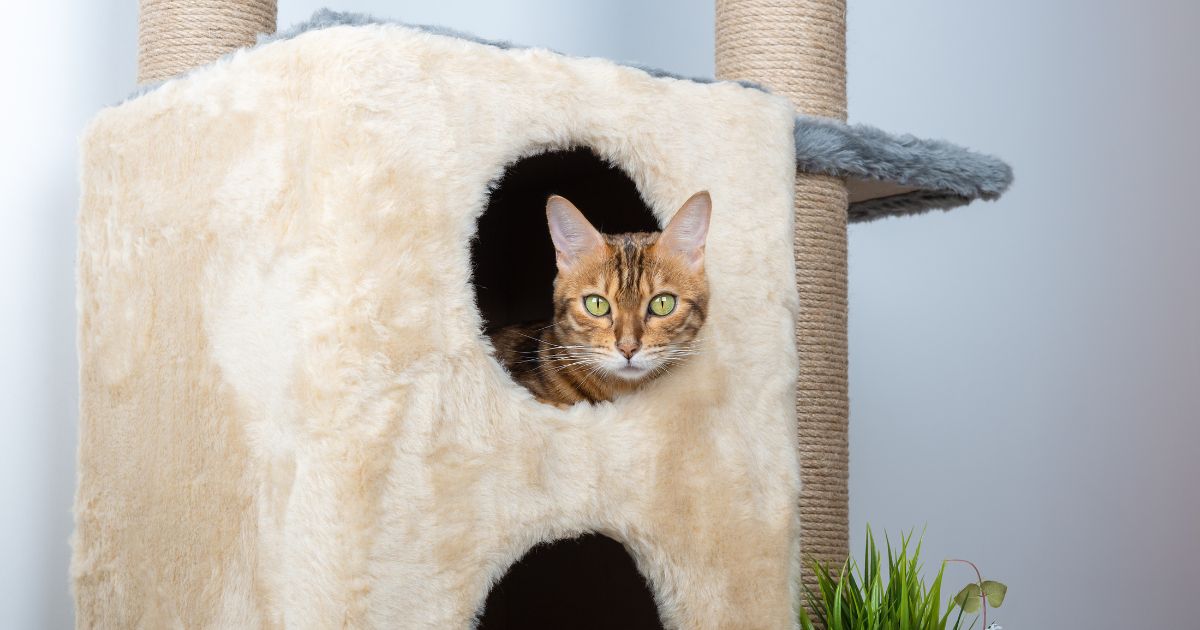
Cats To Be Allowed To Be Kept In HDB Flats
From 1 September 2024, up to two cats, and one dog of an approved breed, will be allowed to be kept in any HDB residential unit.
Residents of private premises will be able to keep up to three cats or dogs, or a combination of both.
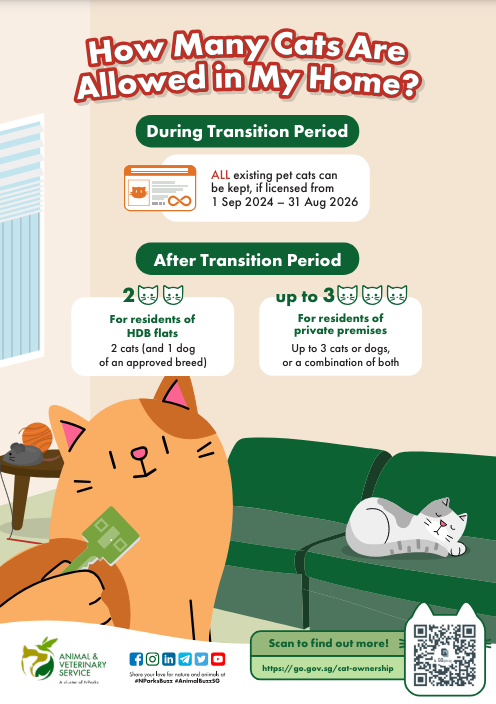
If You Currently Have Cats
As pet ownership is a lifelong commitment, those who already keep cats in their HDB unit can continue to keep their existing pet cats if they apply for licences for their cats and ensure that the cats’ health and welfare are taken care of.
This applies to all existing pet cats, so those with three or more furbabies don’t have to say goodbye to them as long as they’re licensed within the transition period from 1 September 2024 to 31 August 2026.
Cat owners who fail to license their existing pet cats by the end of the transition period will only be allowed to license and keep up to two pet cats in each HDB flat, or up to three cats and/or dogs in private premises.
Note that pet abandonment is an offence that carries a fine not exceeding $10,000 or imprisonment for a term not exceeding 12 months, or both.
To Apply For A Licence
All pet cats must be licensed for traceability in the event of an outbreak in disease. It will be an offence to keep unlicensed pet cat(s) from 1 September 2026, regardless of whether you stay in a HDB or not.
From 1 September 2026, owners found keeping unlicensed pet cats are liable to a fine not exceeding S$5,000.
Licensing will be available online via the National Parks Board’s Animal and Veterinary Service’s (AVS) Pet Animal Licensing System portal from 1 September 2024.
To apply for a licence, cat owners must first microchip their cat. First-time cat licence applicants must also complete a one-time free online pet ownership course.
Additionally, cat owners must keep their cats in a safe environment and take “reasonable steps” to protect them from hazards, such as installing wire meshing at windows.
Pet cats must also be kept under physical control in public, and are not allowed to freely roam, by using a harness or placing them in a carrier.
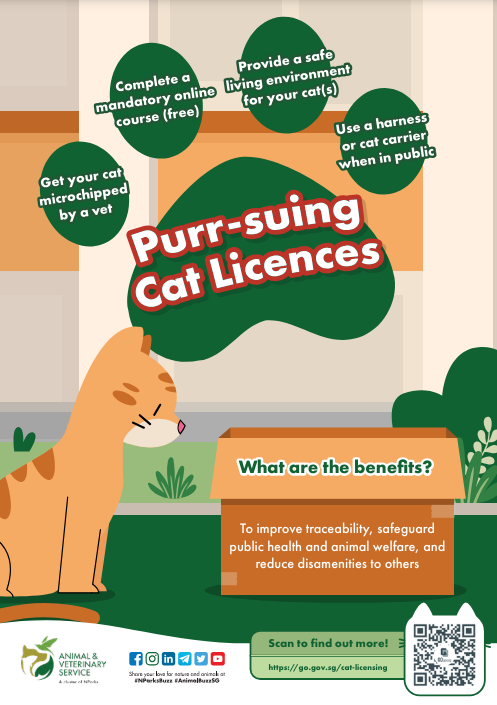
Licensing will be free during the two-year transition period.
For sterilised cats, licences issued during the transition period will have a lifetime validity.
Unsterilised cats can only be granted a one-year or two-year license on a renewal basis.
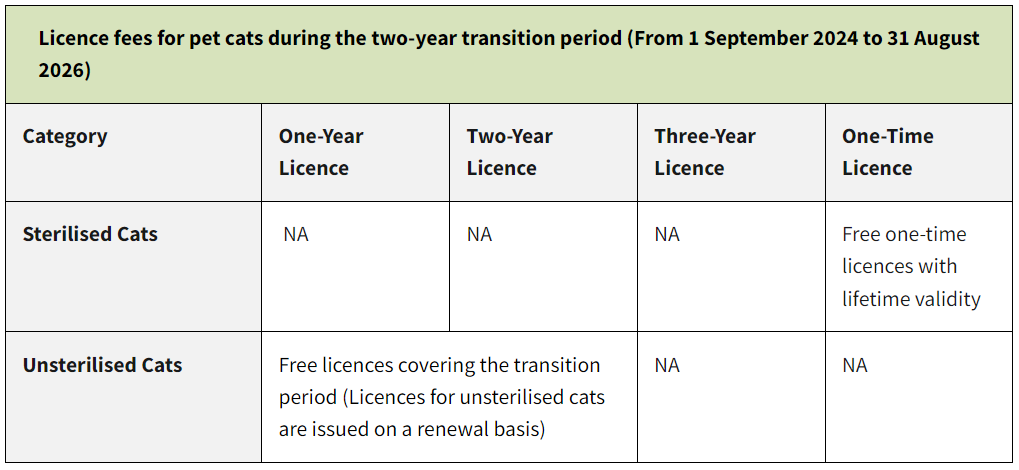
After the transition period, a fee will apply.
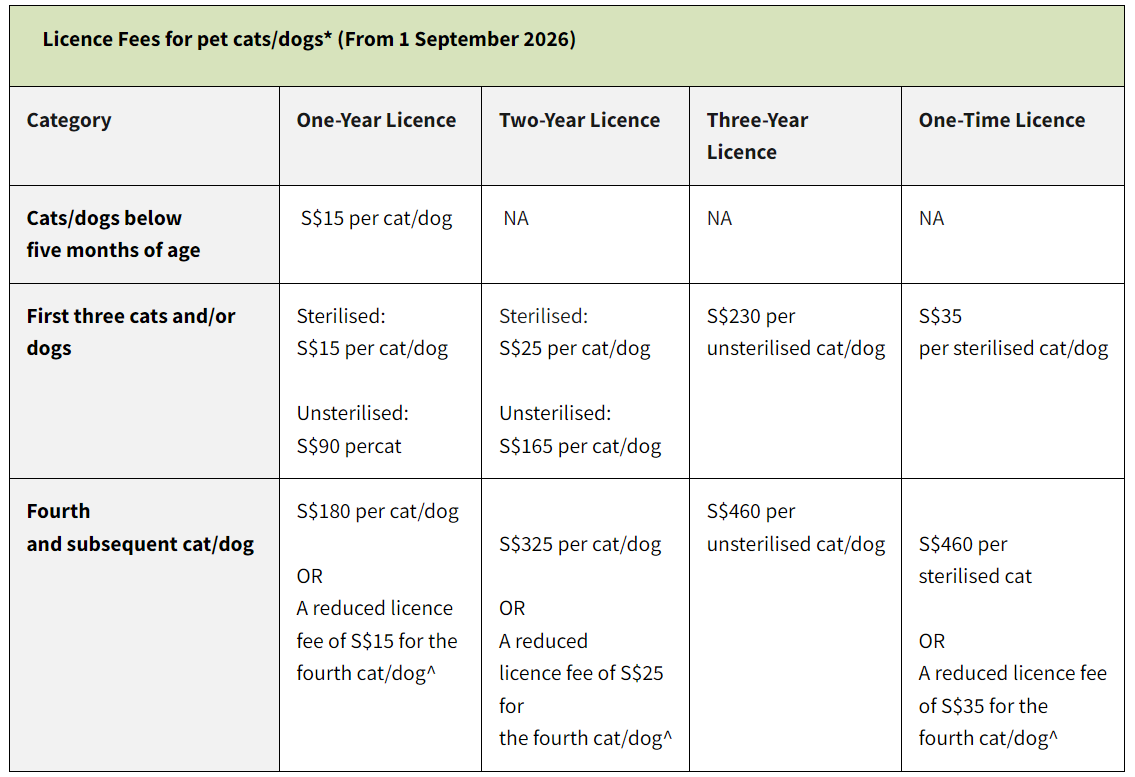
AVS will be launching the Pet Cat Sterilisation Support Programme on 1 September to provide low-income households with free sterilisation and microchipping for their pet cats.
More information on cat licensing and frequently asked questions are available online.
Also, you can watch this video whereby a real cat complains about the 35-year-old ban that he thinks is unfair:



